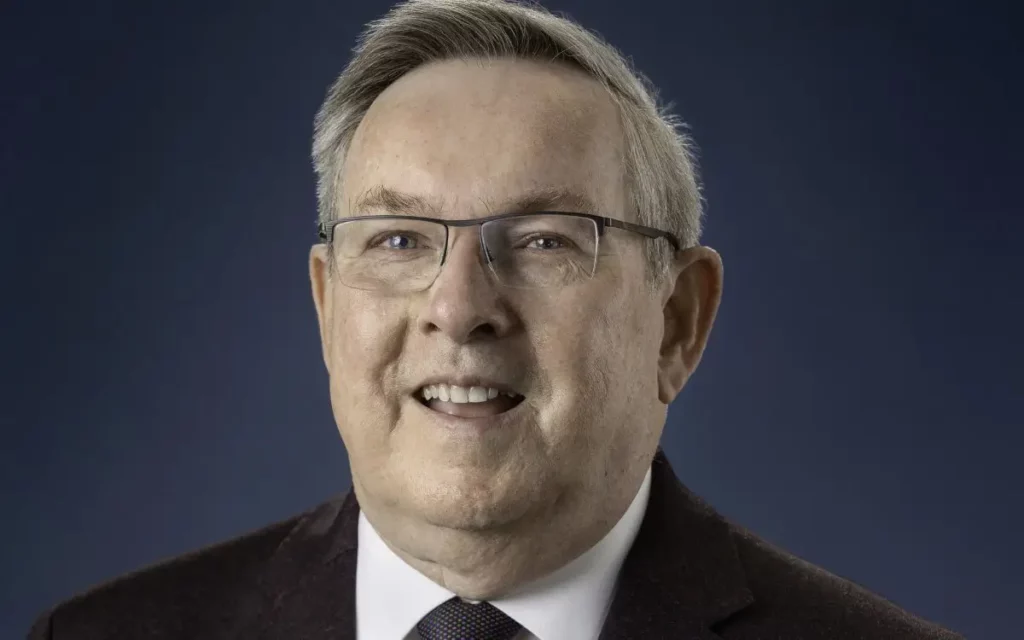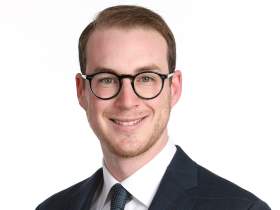
Regional staff are proposing an 8.72 per cent property tax increase for 2025. Pictured: Niagara Regional Council Chair Jim Bradley. Photo Credit: Niagara Region.
Niagara Region residents are staring down an upper-tier property tax increase of 8.72 per cent in 2025 if city staff have their way.
That’s significantly higher than last year’s 7.02 per cent property tax increase, which was already one of the highest property tax increases in Ontario for 2024.
This year’s staff recommendation was presented to the Budget Committee last Thursday. Every member of council sits on the Budget Committee, which is a Committee of the Whole.
The Budget Committee is chaired by Wayne Redekop, who is also Mayor of Fort Erie.
The presentation was made by Beth Brens, the region’s associate director of budget planning and strategy. Brens’ presentation kicks off a months-long process that will ultimately see Niagara Regional Council pass a budget by December after a final budget committee meeting on Dec. 5.
Niagara Region’s Chief Administrative Officer, Ron Tripp, was also on hand to answer questions.
Brens tried to sell the tax increase as a necessary step in preserving and funding Niagara Region’s core services. She noted that the proposed tax increases are supported by the city’s “corporate leadership team,” meaning key members of city staff.
Brens pointed at provincial policies that lessen development charges to encourage more homebuilding as a key budgetary pressure, although the province is expected to pony up funds to help offset some development charge decreases.
Niagara Region residents are also staring down a proposed 12.59 per cent increase in water and wastewater rates, a 5.9 per cent waste management special levy, and a 6.65 per cent special levy for the Niagara Transit Commission.
Brens also claimed that, in recent years, property tax increases have been lessened by drawing on the Taxpayer Relief Reserve Fund, but warned that doing so again risks the sustainability of that fund.
However, council could still decide to draw on those reserve funds again to try to drive the property tax increase, as well as some other rates increases, down.
Nothing in the presentation offered any suggestions in terms of how to reduce spending in order to lessen the proposed tax increase being hoisted upon taxpayers.
Redekop also noted that council deliberately chose not to give city staff a property tax increase cap, instead asking staff to produce a suggested tax increase they feel is necessary to address Niagara Regional Council’s priorities.
Council can still modify the numbers suggested by city staff in the months ahead.
In commenting on Brens’ presentation, many councillors lamented the fact that property tax increases are the primary means through which the region can raise additional revenue.
Councillor Robert Foster, representing the Town of Lincoln, noted that, when the economy improves, tax revenues for provincial and federal governments usually go up from more income tax revenue generation and more consumer spending, which leads to higher sales tax revenue.
Redekop pointed out that, unlike at the provincial and federal levels, municipalities’ reliance on property taxes to support the budget means that economic growth has minimal impact on tax revenue being brought into regional coffers.
“We don’t have any number of taxes on products that upper levels of government have available to them,” said Redekop.
“Our monies are being retrieved differently,” added Foster. “It’s difficult for property owners but it’s the only avenue we have.”
Still, there was no talk at the Budget Committee meeting about specific ways to reduce the tax increase, with taxpayers already face massive cost-of-living pressures. The closest council came to that was a question or two by different councillors about present regional staffing levels.
Over the past few years, Niagara Region has consistently raised property taxes at a much higher rate than most of Ontario’s other upper-tier municipalities.

Jay Goldberg is the Ontario Director at the Canadian Taxpayers Federation. He previously served as a policy fellow at the Munk School of Public Policy and Global Affairs. Jay holds a Ph.D. in Political Science from the University of Toronto.




















